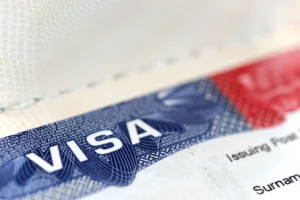Child adoption in Thailand is a regulated process that involves both domestic and international applicants. The procedure is governed by the Child Adoption Act of 1979 and overseen by the Child Adoption Center under the Department of Social Development and Welfare (DSDW). Adopting a child in Thailand requires patience and compliance with both legal requirements and eligibility criteria to ensure the child’s best interests are prioritized.
This article explores the different types of adoption, the eligibility requirements, the adoption process, and key considerations for both Thai nationals and foreigners looking to adopt a child in Thailand.
1. Types of Adoption in Thailand
There are two primary types of adoption in Thailand: domestic adoption (for Thai nationals and legal residents) and intercountry adoption (for foreigners seeking to adopt a Thai child). Both types involve distinct processes and documentation requirements.
a) Domestic Adoption
Thai citizens and legal residents are eligible to apply for domestic adoption, which follows a relatively streamlined process compared to intercountry adoption. Domestic adoption applicants must meet the qualifications set by the DSDW and provide a safe and nurturing environment for the child. The process is shorter and typically involves less scrutiny than intercountry adoption.
b) Intercountry Adoption
Foreigners, or Thai nationals residing abroad, wishing to adopt a Thai child must go through the intercountry adoption process, which is more complex and requires approvals from both the Thai authorities and the foreign adoptive parents’ home country. Thailand is a signatory to the Hague Convention on Intercountry Adoption, ensuring that the process complies with international standards and safeguards the child’s welfare.
2. Eligibility Requirements for Adoption
The eligibility requirements differ slightly for Thai nationals and foreign adoptive parents but are designed to ensure that potential adopters can provide a stable and supportive environment for the child.
a) Thai Nationals
- Age: The prospective adoptive parent must be at least 25 years old and at least 15 years older than the child they are adopting.
- Marital Status: If married, both spouses must jointly apply to adopt unless the spouse is a parent of the child being adopted.
- Criminal Record: Applicants must have a clean criminal record and demonstrate good moral standing.
- Financial Stability: Adoptive parents must show they are financially capable of supporting the child.
b) Foreign Nationals
For foreigners, the eligibility requirements are generally more stringent:
- Hague Convention: If the applicant’s country is a signatory to the Hague Convention on Intercountry Adoption, the adoption must comply with the convention’s standards.
- Residency: Foreigners must either reside in Thailand or work through an authorized adoption agency in their home country.
- Age and Marital Status: Similar to Thai nationals, foreign adoptive parents must be at least 25 years old and 15 years older than the child. Couples must jointly apply unless adopting a spouse’s child.
- Home Study: Foreigners must undergo a home study conducted by a licensed adoption agency in their home country, assessing their suitability to adopt.
3. The Adoption Process in Thailand
The adoption process involves several stages, from initial application to the final approval of adoption. Both domestic and international applicants must navigate this multi-step procedure, which includes background checks, home visits, and legal formalities.
a) Initial Application
The process begins with submitting an application to the Child Adoption Center, either directly for Thai nationals or through an authorized agency for foreign nationals. The application includes personal documents, financial information, and a letter of intent explaining why the prospective parents want to adopt.
b) Home Study and Evaluation
Both Thai and foreign applicants undergo a thorough home study, which involves interviews, home visits, and assessments to ensure the family is suitable for adoption. The authorities look at the prospective parents’ financial situation, health, mental stability, and overall capability to care for a child.
c) Matching with a Child
Once the evaluation process is complete, the Child Adoption Center matches the applicant with a child. The child may come from an orphanage, foster care, or be relinquished by birth parents.
d) Probationary Period
After the match, the child is placed in the prospective parents’ care for a 6-month probationary period (for domestic adoptions) or longer for intercountry adoptions. During this time, social workers regularly assess the child’s adjustment and the family’s ability to care for the child.
e) Finalization of the Adoption
After the probationary period, if the placement is deemed successful, the adoption is finalized in court. The court issues an adoption decree, which formally recognizes the adoptive parents as the child’s legal guardians. For international adoptions, additional steps may be required to obtain the child’s citizenship in the adoptive parents’ home country.
4. Key Considerations for International Adoption
Adopting a child from Thailand as a foreigner involves several additional steps and considerations:
a) Authorized Agencies
Foreign adoptive parents must work with an adoption agency that is authorized by both the Thai government and the adoptive parent’s home country. These agencies facilitate the legal and administrative aspects of the process and ensure compliance with international adoption laws.
b) Hague Convention Compliance
Thailand’s membership in the Hague Convention means that all intercountry adoptions must follow strict regulations designed to protect the best interests of the child. This includes ensuring that the child is legally free for adoption and that the birth parents (if known) have provided informed consent.
c) Immigration and Citizenship
After finalizing the adoption in Thailand, foreign parents must complete the process of obtaining citizenship and immigration papers for the child to move to their home country. This typically involves filing for an immigrant visa or equivalent documentation with the embassy or consulate of the adoptive parents’ home country.
5. Challenges in the Thai Adoption Process
While adoption in Thailand is well-regulated, there are certain challenges that prospective parents may face:
a) Length of the Process
The adoption process can be lengthy, especially for foreigners. Intercountry adoptions can take anywhere from one to three years to complete due to home studies, evaluations, and compliance with Thai and international laws.
b) Cultural and Language Differences
For international adoptions, adoptive parents must be mindful of the child’s cultural and linguistic background. Post-adoption services, such as counseling and language training, may be necessary to help the child adjust to life in a different country.
c) Emotional and Psychological Adjustment
Adopted children, particularly those from orphanages or foster care, may have experienced trauma, abandonment, or emotional difficulties. Adoptive parents must be prepared to support the child through these challenges, often requiring professional support.
Conclusion
Child adoption in Thailand is a legally complex and emotionally rewarding process that requires patience and a deep understanding of the country’s legal requirements and cultural considerations. Whether adopting domestically or internationally, prospective parents must navigate a detailed and structured process that prioritizes the child’s welfare. Working with authorized adoption agencies, complying with international regulations, and preparing for the emotional and practical aspects of adoption are essential steps toward ensuring a successful adoption experience in Thailand.




